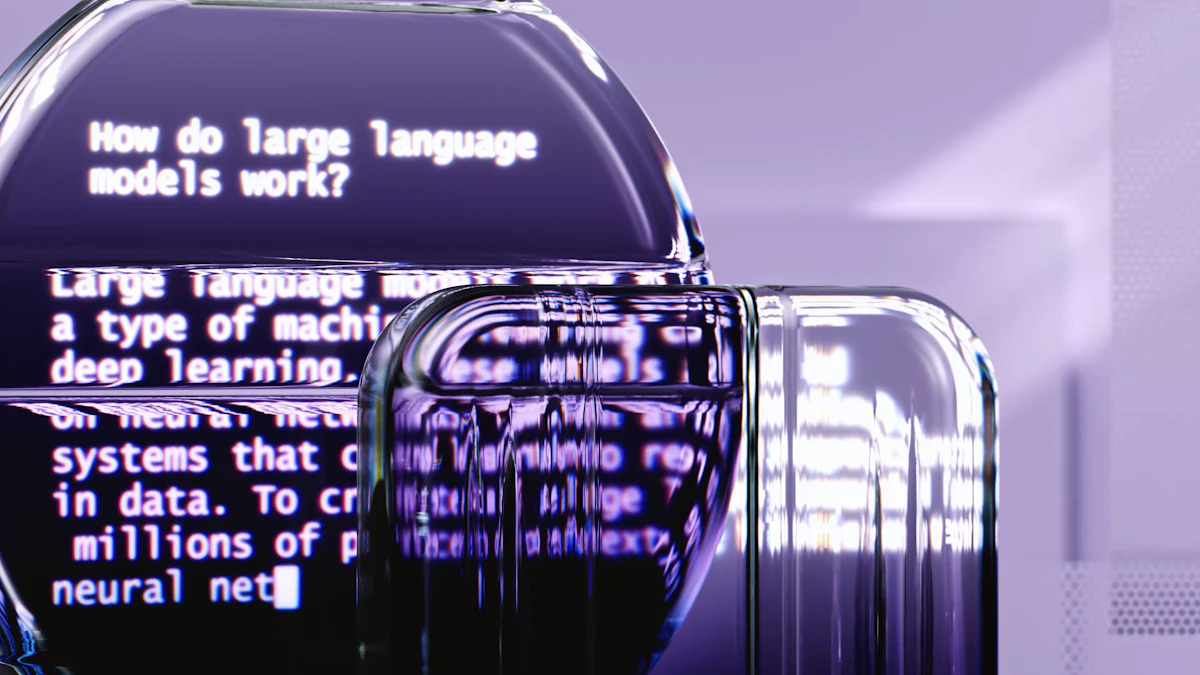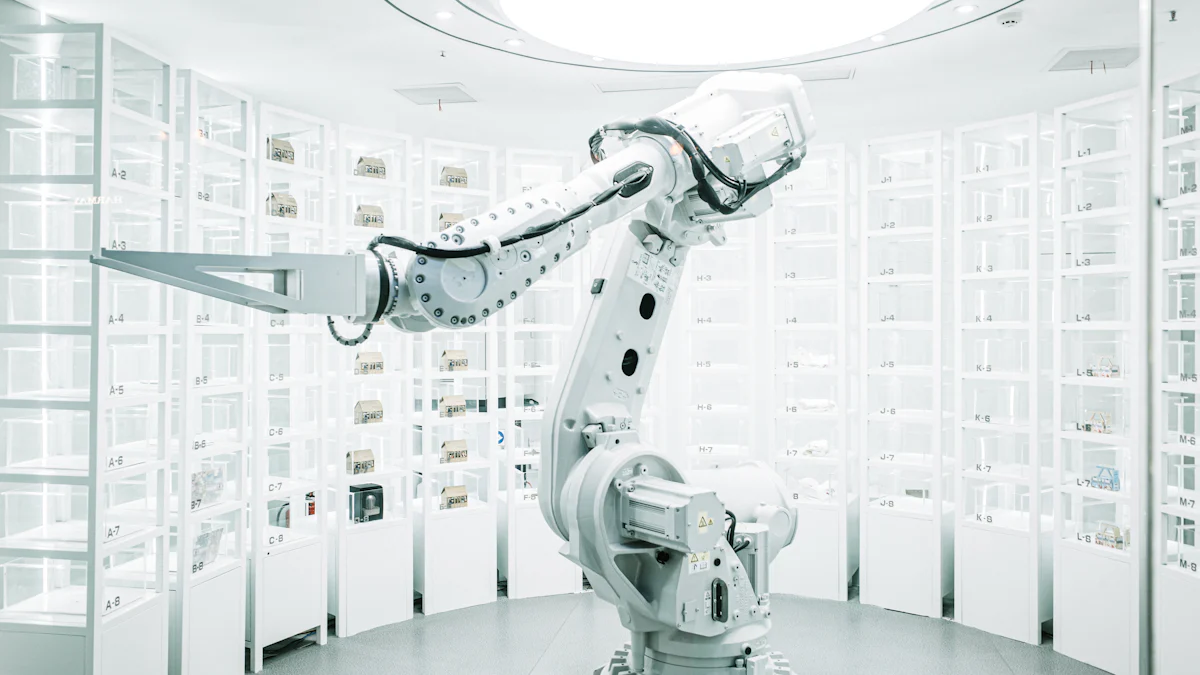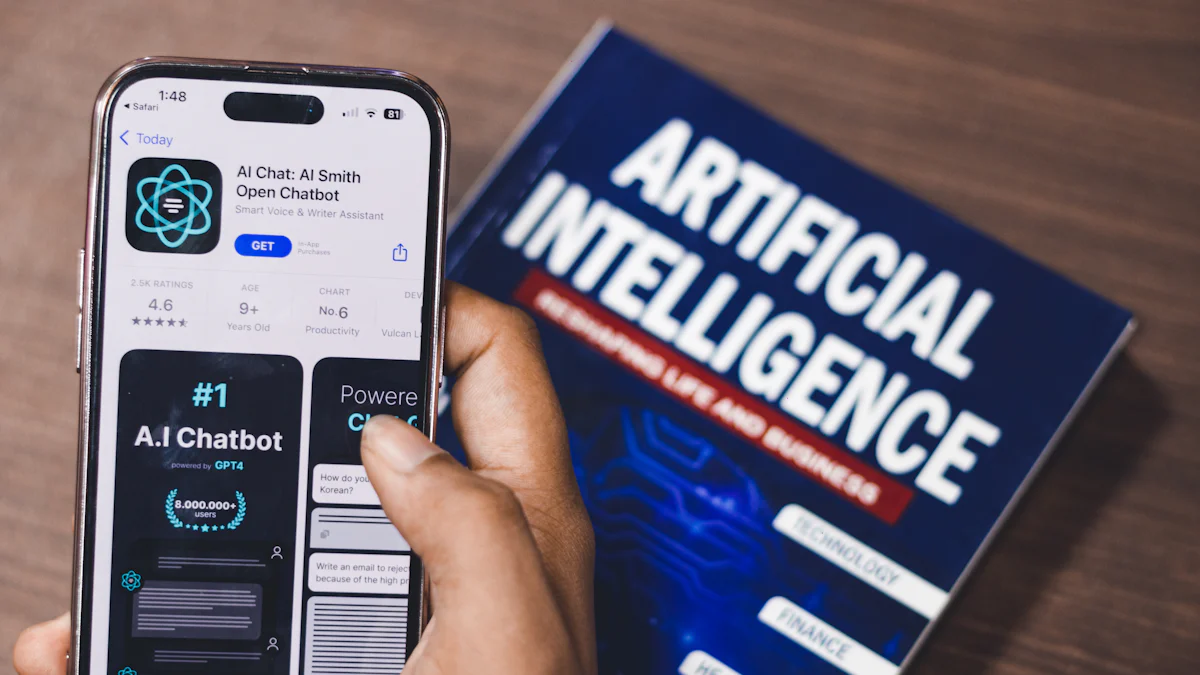Google's AI Agent White Paper: Redifining AI Agent Development in 2025

The Google white paper on AI agent development introduces groundbreaking advancements that redefine how you interact with AI. Unlike traditional models, these agents combine cognitive architectures with tool integration to deliver dynamic, goal-oriented solutions. They can autonomously handle tasks like travel booking assistance, customer support, and enterprise workflow management.
Momen complements these innovations by simplifying AI integration for businesses. Its RAG capabilities, tool invocation, and structured output generation align with the agent's ability to retrieve real-time data and execute complex actions. This synergy empowers you to create scalable, AI-driven applications without technical expertise.
Tools bridge the gap between the agent’s internal capabilities and the external world. These include APIs, extensions, and data stores, enabling agents to fetch information, execute actions, and adapt to evolving knowledge.
What Are AI Agents?
Defining AI Agents
AI agents are autonomous systems designed to perform tasks proactively and achieve specific goals. Unlike traditional AI models, these agents operate independently, continuously adapting to their environment. They excel in self-initiated task planning, problem decomposition, and error recovery. Their ability to monitor performance and optimize actions ensures they remain effective without human intervention.
Key characteristics of AI agents include:
Autonomy: They perform tasks without constant supervision.
Perception: They interpret their surroundings using sensors or data inputs.
Reactivity: They assess situations and respond to achieve objectives.
Decision-making: They analyze data and make informed choices.
Learning: They improve performance through adaptive techniques.
Communication: They interact with humans or other agents using natural language..
How AI Agents Differ from Traditional AI Models
AI agents differ significantly from traditional AI models in functionality and adaptability. Traditional models focus on analyzing data and making predictions. In contrast, AI agents act autonomously, interact with their environment, and adapt to changing conditions. They pursue goals independently, making them ideal for dynamic, interactive tasks.
Key differences include:
Functionality: AI agents perform actions and interact with external systems, while traditional models remain static.
Goal-directed behavior: Agents autonomously achieve objectives, unlike models that process data passively.
Environment interaction: Agents adapt based on real-time feedback, whereas models rely on pre-trained data.
Decision-making: Agents evaluate multiple factors and adjust decisions as new information emerges.
For example, a traditional AI model might suggest travel destinations based on general knowledge. An AI agent, however, can book flights or check hotel availability by accessing real-time data and external tools. This adaptability makes AI agents indispensable for enterprise applications requiring dynamic responses.
Momen AI enhances these capabilities by integrating tools and APIs, enabling your custom AI agents to perform complex actions seamlessly. Its structured output ensures precise task execution, making it a powerful solution for enterprises seeking scalable AI-driven applications.
Key Innovations in Google's AI Agent White Paper

Differences Between AI Models and AI Agents
AI agents bring a transformative shift in how you interact with artificial intelligence. Unlike traditional AI models, which rely on static training data, AI agents extend their knowledge by connecting to external systems. They manage session history, enabling multi-turn interactions that allow for more dynamic and context-aware conversations. This capability ensures that the agent remembers prior exchanges, making its responses more relevant and personalized.
AI agents also integrate tools to enhance their functionality. These tools enable them to take actions in real-world scenarios, such as retrieving data, executing tasks, or automating workflows. For example, an agent can use APIs to check flight schedules or access a data store for updated travel policies. This integration bridges the gap between the agent's internal capabilities and the external world, making them indispensable for enterprise applications.
Data stores allow AI agents to access up-to-date, dynamic information, addressing the limitations of static training data.
Cognitive Architectures for Decision-Making
Google's white paper introduces advanced cognitive architectures that enhance the decision-making process of AI agents. These architectures include:
ReAct: This combines reasoning and acting in real time. It allows agents to dynamically use external tools or data sources, enabling them to adapt to changing conditions.
Chain-of-Thought (CoT): This architecture breaks down complex tasks into logical steps. It improves accuracy by enabling agents to reason step-by-step, similar to how humans solve problems. For instance, in medical diagnosis, CoT helps agents evaluate symptoms systematically to reach accurate conclusions.
Tree-of-Thought (ToT): This approach explores multiple reasoning pathways simultaneously, akin to decision trees. It allows agents to evaluate various solutions and select the optimal one, making it ideal for advanced problem-solving scenarios.
These architectures empower AI agents to handle intricate tasks with precision and autonomy, making them valuable for enterprise use cases.
Tool Integration and External Connectivity
Tool integration is a cornerstone of AI agentic capabilities. Extensions provide access to APIs and external tools, enabling agents to perform specific tasks like web searches, data retrieval, or browser automation. Functions allow agents to execute predefined actions, while data stores ensure they retrieve the most current information.
For example, an AI agent can use a mapping tool to locate nearby hotels or a natural language processing API to analyze customer feedback. These integrations position AI agents as digital workers capable of automating complex workflows across industries like logistics and customer service.
The Future of AI Agent Development

Simplifying Deployment with Google's Tools
Deploying AI agents has become more accessible with tools like LangChain and Vertex AI. These platforms streamline the process, enabling you to focus on achieving your desired outcome rather than managing complex infrastructure. Vertex AI provides managed infrastructure and integrates seamlessly with Google Cloud services. Its support for popular machine learning frameworks and advanced models like Gemini makes it ideal for building sophisticated applications. LangChain, on the other hand, simplifies the lifecycle of language model applications. It offers tools like LangChain Expression Language (LCEL) for chaining components and LangGraph for creating multi-actor applications. Its ability to process multimodal inputs, such as text, images, and audio, enhances its versatility across industries.
For non-technical users, Momen offers a no-code approach that empowers you to create AI agents without writing a single line of code. It offers a robust framework that encompasses frontend, backend, and database management, allowing users to harness the full potential of large language models (LLMs) without the complexities of traditional development. With features such as RAG (Retrieval-Augmented Generation) for efficient data retrieval, structured output generation for binding data to UI components, and tool invocation for real-time data processing, Momen empowers organizations to create sophisticated applications. Additionally, its flexible architecture supports the creation of AI agents that can collaborate and automate workflows, making it an ideal choice for businesses aiming to scale and innovate in the AI landscape.
Opportunities and Challenges
AI agents present numerous opportunities for enterprises. They enhance productivity by automating repetitive tasks and analyzing data efficiently. Their ability to tailor responses based on customer data creates personalized user experiences. For example, AI agents can analyze purchase history and preferences to recommend products that align with customer needs. They also provide 24/7 availability, handle multiple inquiries simultaneously, and deliver consistent service, building trust with users.
However, challenges remain. Ethical considerations, such as bias in AI algorithms, require careful attention. Transparency in decision-making is essential, as many AI systems operate as black boxes. Data privacy also poses significant concerns, especially with regulations like GDPR. Enterprises must address these issues to ensure responsible agent deployment and maintain user trust.
Google's AI agent white paper introduces transformative advancements that redefine AI development. These include autonomy in decision-making, dynamic tool integration, and a robust orchestration layer. AI agents can now handle tasks like managing financial transactions, automating logistics, and personalizing customer interactions. By bridging internal capabilities with external tools, these agents become active participants in business processes.
Momen makes AI accessible to businesses of all sizes. Its no-code platform allows you to create AI-driven applications using a drag-and-drop interface. Features like RAG retrieval, tool invocation, and structured output generation simplify complex workflows, enabling you to deploy scalable solutions effortlessly.
Exploring tools like Momen, LangChain, and Vertex AI ensures you stay competitive. These tools empower you to build agents that interact dynamically with external systems, access real-time data, and adapt to fast-changing environments. By leveraging these innovations, you can unlock the full potential of AI in 2025.
FAQ
What makes AI agents different from traditional AI models?
AI agents act autonomously and adapt to changing environments. They integrate tools and external data sources to perform dynamic tasks. Unlike traditional models, which rely on static data, agents use real-time information and maintain session history for multi-turn interactions. This makes them more versatile and interactive.
How does Momen AI simplify AI agent deployment?
Momen AI provides a no-code platform with a drag-and-drop interface. It supports RAG retrieval, tool invocation, and structured output generation. These features allow you to build AI agents that retrieve real-time data, execute complex tasks, and deliver precise results without requiring technical expertise.
What is RAG retrieval, and why is it important?
RAG (Retrieval-Augmented Generation) retrieval combines stored knowledge with real-time data. It enables AI agents to access up-to-date information from various sources. This ensures accurate and contextually relevant responses, making it essential for applications like customer support, financial management, and workflow automation.
How do cognitive architectures improve AI agents?
Cognitive architectures like ReAct, Chain-of-Thought (CoT), and Tree-of-Thought (ToT) enhance decision-making. ReAct enables real-time reasoning, CoT breaks tasks into logical steps, and ToT evaluates multiple solutions. These methods allow agents to handle complex tasks with precision and autonomy.
Can non-technical users create AI-driven applications?
Yes, tools like Momen AI empower non-technical users. Its visual interface simplifies application design. You can integrate APIs, manage structured outputs, and refine projects in real time. This makes it easy to deploy scalable AI solutions tailored to your business needs.
See Also
The Impact of AI Agents on Startups and Enterprises
A Simple Introduction to AI Agents for Beginners
Top 12 Strategies for Integrating AI in SaaS by 2025
Explore Profitable AI Opportunities for 2025
AI as a Collaborator in Software Development, Not a Substitute
